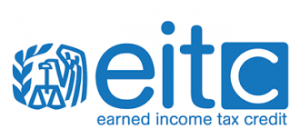Guide to Individual and Family Tax Credits for 2023 and 2024
To assist taxpayers, the Federal Government has unveiled a comprehensive list of individual and family tax credits for 2023 and 2024.
TRAVERSE CITY, MI, US, August 25, 2023/EINPresswire.com/ -- As the tax season inches closer, understanding available tax credits becomes pivotal for effective financial planning.
To assist taxpayers, the Federal Government has unveiled a comprehensive list of individual and family tax credits for 2023 and 2024, tailored to provide maximum fiscal relief.
Key Highlights of Individual and Family Tax Credits in 2023 and 2024:
Child Tax Credit: Families can claim up to $2,000 for children under 18. If you have a dependent child, you may be able to claim the Child Tax Credit when you file your taxes.
Earned Income Tax Credit (EITC): Low-to-moderate-income earners can avail of the EITC, with maximum amounts varying based on the number of qualifying children.
Child and Dependent Care Credit: Eligible families can claim a percentage of costs related to child or dependent care, essential for work or job search, with limits based on adjusted gross income.
American Opportunity Credit: A boon for students, this credit covers the first four years of post-secondary education expenses, with a maximum annual credit of $2,500.
Lifetime Learning Credit: Available for taxpayers with qualified tuition and related expenses, this credit offers up to $2,000 annually without a limit on the number of years.
Adoption Credit: Adoptive parents can claim expenses related to adoption, with the maximum amount set at $14,890 per child for 2023, adjusted for inflation in 2024.
Energy Tax Credits: Homeowners making energy-efficient upgrades can benefit from credits related to energy-efficient windows, insulation, solar installations, wind turbines, geothermal systems, and more.
Health Coverage Tax Credits: Eligible taxpayers can get a percentage of their health insurance premiums covered through this credit.
Saver's Credit: Low-to-moderate income earners contributing to retirement accounts might qualify for this credit, offering a maximum of $1,000 ($2,000 if filing jointly).
This array of credits underscores the government's commitment to providing monetary relief and personal and family growth incentives.
To learn more about family tax credits, visit https://filemytaxesonline.org/how-much-is-the-child-tax-credit/
Frank Ellis
Harbor Financial
+1 231-480-4086
email us here
Visit us on social media:
LinkedIn
Legal Disclaimer:
EIN Presswire provides this news content "as is" without warranty of any kind. We do not accept any responsibility or liability for the accuracy, content, images, videos, licenses, completeness, legality, or reliability of the information contained in this article. If you have any complaints or copyright issues related to this article, kindly contact the author above.



